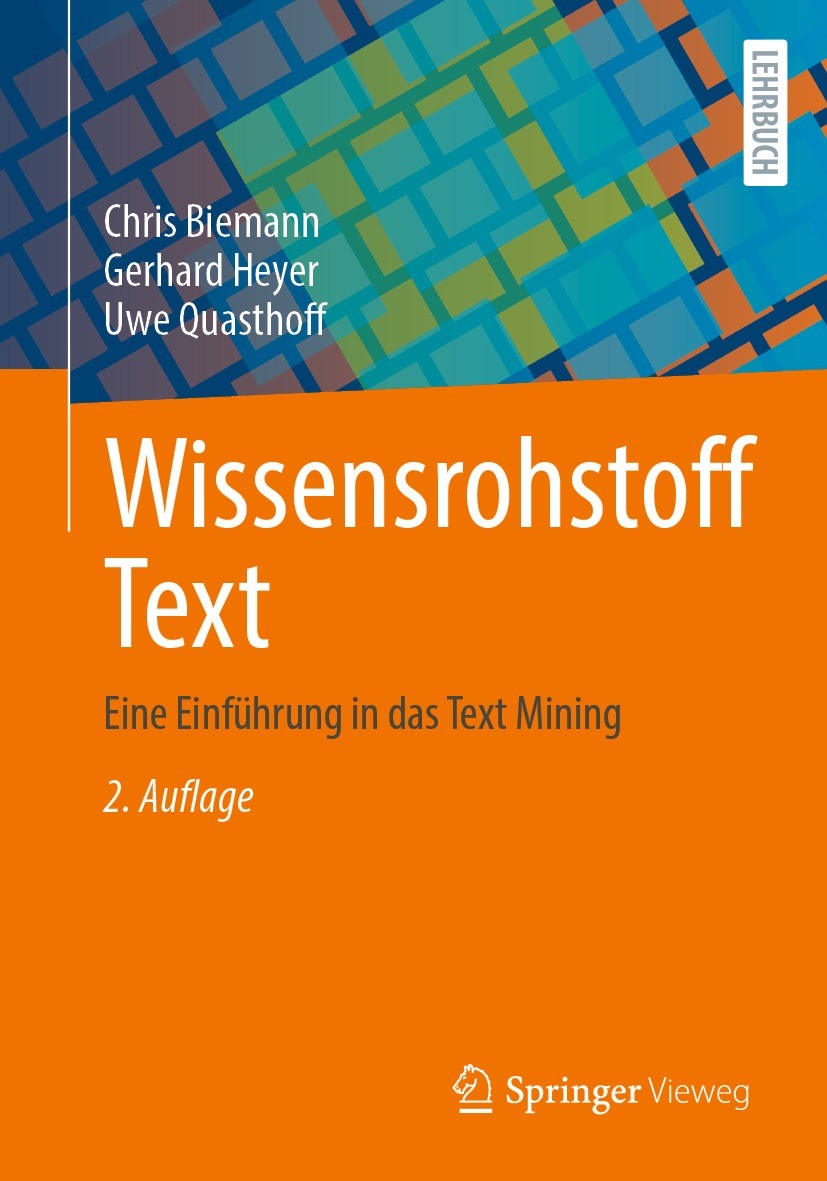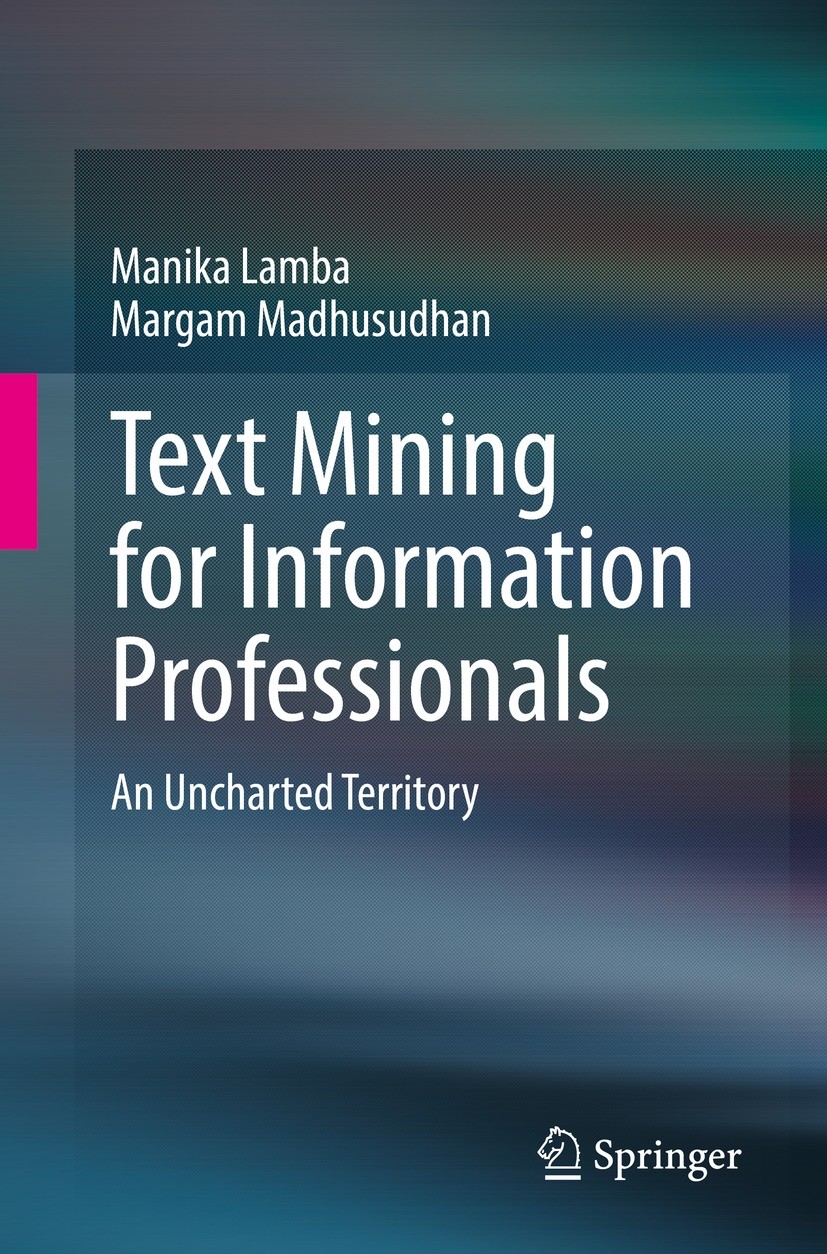Wissensrohstoff Text: Eine Einführung in das Text Mining
Der Inhalt: Einführung in die Arbeit mit Text, Aufbau von Text und Sprache, Verfahren zur maschinellen Verarbeitung von Text, Aufbau von Sprachdaten: Lexika und Korpora, Umgang mit Sprachdaten: Sprachstatistik und Sprachmodelle, Maschinelles Lernen für die Verarbeitung von Text: Clustering, Klassifikation und Trainingsdatenerstellung, Beispielanwendungen von Text Mining: Terminologieextraktion, Recherche, Sentimentanalyse u.v.m.
Die Zielgruppen: Studierende der Informatik, Wirtschaftsinformatik, Medieninformatik, Computerlinguistik oder vergleichbare Disziplinen, Informatiker und Informatikerinnen mit beruflichem Interesse an Sprachtechnologie und Text Mining, Forschende in Anwendungsbereichen von Text Mining aus den Geistes- und Sozialwissenschaften, insbesondere Digital Humanities und Sprachwissenschaft.
zum Buch im ULB-KatalogPlus
zum Buch auf der Verlags-Website
Text mining for information professionals: an uncharted territory
This book focuses on a basic theoretical framework dealing with the problems, solutions, and applications of text mining and its various facets in a very practical form of case studies, use cases, and stories.
The book contains 11 chapters with 14 case studies showing 8 different text mining and visualization approaches, and 17 stories. In addition, both a website and a Github account are also maintained for the book. They contain the code, data, and notebooks for the case studies; a summary of all the stories shared by the librarians/faculty; and hyperlinks to open an interactive virtual RStudio/Jupyter Notebook environment. The interactive virtual environment runs case studies based on the R programming language for hands-on practice in the cloud without installing any software.
From understanding different types and forms of data to case studies showing the application of each text mining approaches on data retrieved from various resources, this book is a must-read for all library professionals interested in text mining and its application in libraries. Additionally, this book will also be helpful to archivists, digital curators, or any other humanities and social science professionals who want to understand the basic theory behind text data, text mining, and various tools and techniques available to solve and visualize their research problems.
zum Buch im ULB-KatalogPlus
zum Buch auf der Verlags-Website
Weitere Titel zu den Digital Humanities finden Sie z.B. über eine Suche im KatalogPlus.

